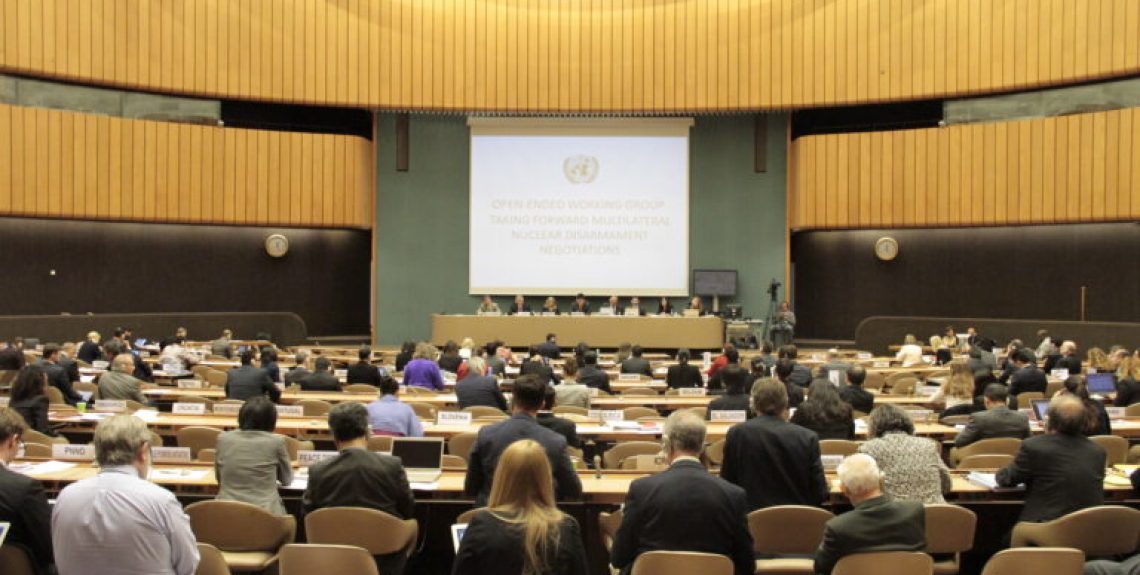On the 22nd of January, just two days after President Biden’s inauguration, the new Treaty on the Prohibition of Nuclear Weapons (TPNW) will enter into force. The new president and his administration cannot ignore this event because the United States, especially under the Trump administration, took the lead in opposing the entry into force of this agreement.
Unlike the Nuclear Non-Proliferation Treaty (NPT) of 1970, which allows five countries (China, France, the United Kingdom, Russia and the United States) to possess nuclear weapons, the TPNW pursues the more ambitious goal of banning all nuclear weapons. It is therefore no surprise that these five countries did not join the new treaty and opposed its negotiation. The same position was taken by the so-called “non-NPT nuclear-weapon states” (North Korea, India, Israel and Pakistan), that have acquired nuclear weapons (or are believed to have done so) without respecting or the recognition of the NPT Treaty.
The provisions of the TPNW also prevented the so-called “umbrella states”, mainly NATO members, from joining the new treaty. Although they have renounced to possess nuclear weapons, these countries rely on the US nuclear deterrent to counter Russia’s nuclear capabilities. Some of them host a limited number of US nuclear weapons on their territory, which is not forbidden by the NPT, but is explicitly prohibited by the new treaty. None of these countries has either ratified or signed the new agreement: in many cases, they have openly opposed it and even declined the invitation to participate in its negotiation despite their obligation to do so under article 6 of the NPT.
Given that nuclear-weapon states and “umbrella” states were all absent, the negotiation of the TPNW took place only between like-minded countries that had no difficulty in agreeing on the text of the treaty. Of all NATO countries, only the Netherlands was brave enough to participate in the negotiations and to explain the reasons why they could not join this treaty.
The entry into force process also took place without difficulties. Because all participants had already previously renounced nuclear weapons by signing the NPT, it came as a slight surprise that it took more than three years to reach the threshold of 50 ratifications necessary for the entry into force of the TPNW.
The main weakness of the treaty does not lie in the low number of its signatures and ratifications if compared to those of the NPT. It mainly rests on the fact that not only all nuclear-weapon states and their allies, but also many states technically capable to produce nuclear weapons have not joined the treaty. Among the twenty most industrialised countries (G20), only South Africa and Mexico have so far ratified it. Iran, Argentina, Saudi Arabia, Egypt and Ethiopia have not signed it, Brazil and Indonesia have signed but not ratified.
As the TPNW treaty is entering into force, its promoters, including the International Campaign to Abolish Nuclear Weapons (NGO ICAN) which was awarded the Nobel Prize for peace in 2017, will have to strive to involve those who should be the true addressees of the treaty, namely the countries that actually possess nuclear weapons and their allies. It will not suffice to do so in countries with democratic and pluralistic institutions where opponents are free to express their views. The Foreign Affairs Committee of the Spanish Chamber of Deputies as well as the new Belgian government have recently welcomed the new treaty. They must also lobby countries led by authoritarian regimes where the opposition is muzzled.
It is becoming increasingly clear, even to some of its major sponsors, that the TPNW cannot be the sole instrument to reach the goal of a world free of nuclear weapons. Just as in the Euro bailout, one must use “whatever it takes” to prevent a nuclear conflict. The new treaty is the expression of a deep frustration among countries that renounced nuclear weapons for the meagre results reached so far in the field of nuclear disarmament.
Far from taking steps forward in arms reductions, nuclear states are taking steps backwards. By withdrawing from the Intermediate Nuclear Forces (INF) Treaty as well as from the JCPOA nuclear arrangement with Iran, and by obstructing the extension of the New Start Treaty, Donald Trump has become the champion of this setback, making it easy for Vladimir Putin to follow suit.
It will be up to the new administration in Washington to reverse this trend, to set the rudder straight, abandon the predecessor’s crusade against the TPNW and to explore all paths that can lead to a world without nuclear weapons, a goal which was already pursued by president Obama.
Carlo Trezza
Carlo Trezza was Italy’s ambassador for Disarmament in Geneva and chaired the Conference on Disarmament, the UN secretary general’s Advisory Board on Disarmament Affairs and the Missile Technology Control Regime.






















